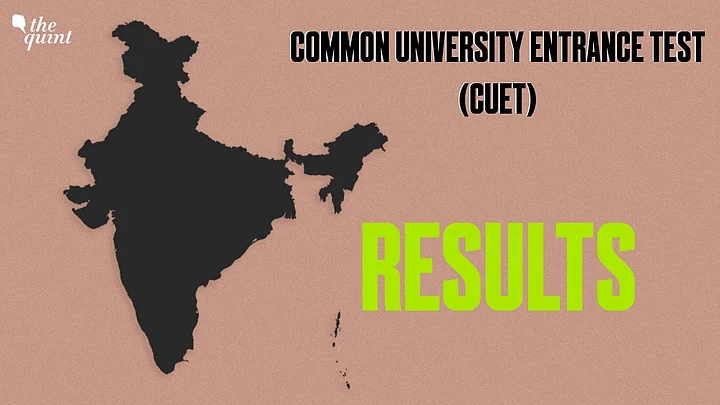After a long wait for students, the Common University Entrance Test (CUET) Undergraduate results were announced at around 5:30 am on Friday, 16 September.
Students can see their percentile as well as their normalised scores on the scorecards. Students can check https://cuet.samarth.ac.in/ or https://nta.ac.in/.
The results were expected to be out by 10 pm on 15 September but the National Testing Agency (NTA) tweeted on Thursday night that they were working on the results which would take longer.
However, they did not specify a time, leaving students anxious all night. Later in the night, The Indian Express reported that results would be announced at 2 am since they were "processing a huge database."
This was the first time that the examination was held on such a large scale. Admissions to 43 central universities and several private and deemed universities will take place on the basis of the CUET results.
How Were the Candidates Evaluated?
Sadhana Parashar, senior director (exams), NTA, said, "The merit lists will be prepared by participating universities, who will decide about their individual counselling on the basis of the CUET-UG score card."
According to Parashar, the performance of every candidate was evaluated using the "equi-percentile method." Under this method, normalised marks of every candidate were calculated using the percentiles of each group of students in a given session across multiple days for the same subject.
"For several subjects, CUET-UG was conducted in different shifts. Since the question papers for any subject in different shifts are different and it is quite possible that despite all best possible efforts to maintain equivalence among various question papers, the difficulty level of these question papers administered in different sessions may not be the same or similar," she added.
"The scores of the students across shifts are not directly comparable. Hence, there was a need for normalising the marks across shifts to make them amenable to such comparisons," she added.
A total of 86 universities participated in the CUET this year, which was conducted in six phases from 15 July to 30 August, with a total of 14,90,000 candidates having registered for the examination. However, only 60 percent attendance was recorded for the examinations.
The examination was made mandatory for admissions to all central universities in March this year.
“As soon as we release the results, the same data will also be simultaneously made available to the 90 universities that adopted the CUET for admission to their undergraduate programmes. From this point, the NTA has no role,” a senior official of NTA was quoted as saying.
As per the official data, Uttar Pradesh had the highest turnout among all the states, while Delhi witnessed the second highest turnout.
The entrance exam was held in 547 cities within India and in 13 cities outside India in countries like Sri Lanka, Qatar, Doha, Indonesia, Nepal, Malaysia, Bahrain, Kuwait, Nigeria, Oman, Saudi Arabia, Sharjah, and Singapore.
Meanwhile, 8,236 candidates have scored 100 percentile in English, making admission to Delhi University’s BA (Honours) English programme tougher than before.
Marred by Glitches
According to the initial plan, all the phases of the CUET UG were scheduled to conclude on 20 August.
However, the exam was further deferred and split into six phases to accommodate students whose exam was rescheduled due to the several glitches that had marred the test.
From technical glitches to last-minute changes in the exam centre and uninformed changes in the exam dates to admit cards mentioning past dates, the students faced several issues during the exam.
Students Receive Percentile and Normalised Scores
The University Grants Commission (UGC) Chairperson M Jagadesh Kumar had earlier said that the students will receive their percentile and normalised scores in the scorecard.
The NTA has used an equipercentile method to reach the normalised scores. This was done because exams for each subject were held in several shifts in the span of one-and-a-half months.
The equipercentile method means that the normalised marks of each candidate will be calculated using the percentiles of each group of students in each session across multiple days for the same subject.
Now, students will be able to apply to any of the 86 universities solely with their CUET scores, instead of their board results, as was done previously.
(At The Quint, we question everything. Play an active role in shaping our journalism by becoming a member today.)
